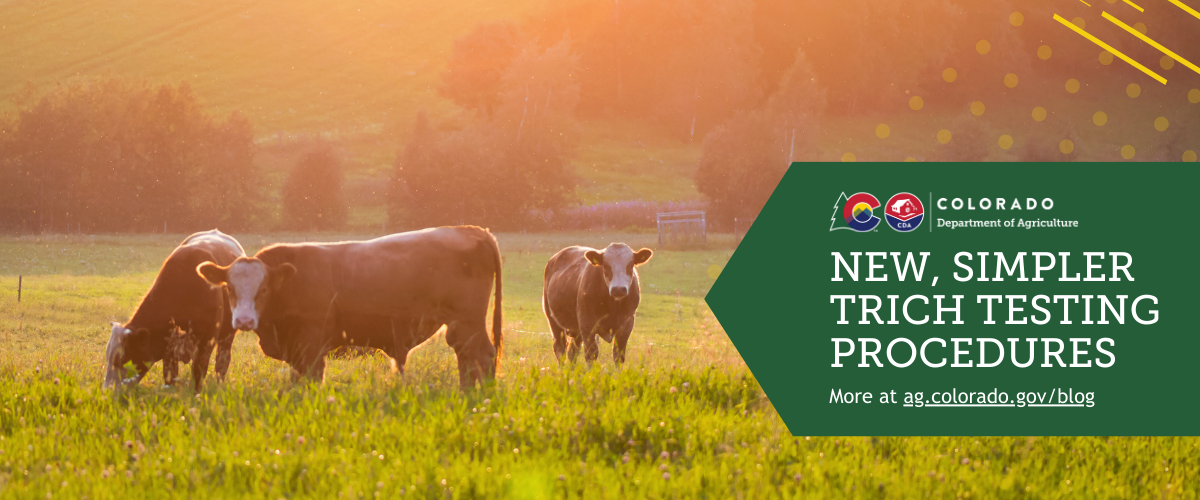As Tritrichomonas foetus (Trich) testing is soon to pick up again, the Colorado Department of Agriculture’s Animal Health Lab and the Colorado State University Veterinary Diagnostic labs in Fort Collins, Grand Junction and Rocky Ford have begun using a new testing method: reverse transcriptase PCR (RT-PCR), that offers an extended submission timeframe and more cost effective sampling media.
The Animal Health Lab continuously works to improve the way Trich samples are collected and processed. At the end of last year’s Trich season, this lab validated and began accepting samples for this new method to improve customer experience. Now all trich testing labs in Colorado utilize this new method.
The testing procedure of analyzing Trich samples through PCR tests has changed from analyzing the DNA of the sample to analyzing its RNA. This change means that samples are stable for longer and can reach the lab within six days of collection, instead of the current three. With this change, fewer repeat tests are needed if samples are delayed through shipping. The new method may decrease how often owners have to run their bulls through a chute, which increases overall safety for the bull as well as the veterinarian collecting the sample.
While the procedure of the sample collection remains the same, the new sample collection media is less expensive, decreasing the cost per sample collection from roughly $8 to about $2. The new collection materials are also more available. They can be purchased through several reliable vendors, including the CDA and CSUlaboratories, which should help avoid supply chain issues.
This change is more time efficient for the laboratory as well, since the test samples undergo a simplified process. The new PCR testing requires fewer preparatory steps, allowing for fewer errors and saving considerable time for laboratory staff.
Through all of these improvements, Trich testing is now more convenient for veterinarians, cattle, and cattle owners to meet the requirements of 8 CCR 1201-19!
